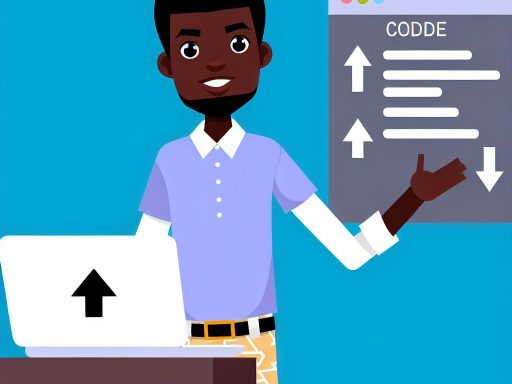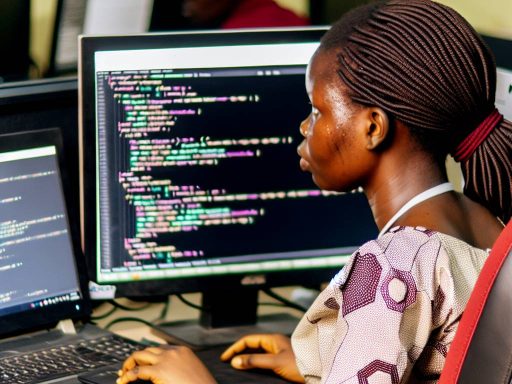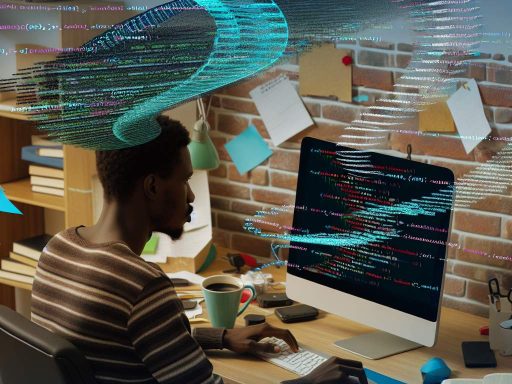Coding Fundamentals
Coding Fundamentals for Beginners
Understanding coding fundamentals is essential for anyone starting a career in programming.
These basics lay the foundation for more advanced concepts.
What is Coding?
1. Coding as a Language
Coding is the process of writing instructions that a computer can understand.
It is similar to learning a new language.
Key Concepts:
- Syntax: The rules that define how to write code.
- Commands: Instructions given to the computer.
- Programs: A set of commands that perform a specific task.
2. Why Learn Coding?
Learning coding opens up many opportunities.
It enables you to create websites, apps, and software solutions.
Benefits:
- Career Opportunities: Coding skills are in high demand across industries.
- Problem-Solving: Coding enhances your problem-solving abilities.
- Creativity: Coding allows you to bring your ideas to life.
Fundamental Concepts in Coding
1. Variables and Data Types
Variables store data that can be used and manipulated in programs.
Understanding data types is crucial for writing effective code.
Types of Variables:
- Integers: Store whole numbers.
- Strings: Store text.
- Booleans: Store true or false values.
2. Control Structures
Control structures guide the flow of a program.
They determine how the program reacts to different conditions.
Common Control Structures:
- If Statements: Execute code based on a condition.
- Loops: Repeat a block of code multiple times.
- Switch Statements: Choose between multiple options.
3. Functions and Procedures
Functions and procedures are blocks of code that perform specific tasks.
They help in organizing and reusing code.
Function Concepts:
- Defining Functions: Create a function to perform a task.
- Calling Functions: Use the function in your code.
- Parameters: Pass information into functions.
Choosing a Programming Language
1. Start with Beginner-Friendly Languages
Beginner-friendly languages make it easier to grasp coding fundamentals.
They have simple syntax and a large support community.
Popular Choices:
- Python: Known for its simplicity and readability.
- JavaScript: Widely used for web development.
- Scratch: A visual language designed for beginners.
2. Consider Your Goals
Choose a programming language that aligns with your career goals.
Different languages serve different purposes.
Language Options:
- Web Development: JavaScript, HTML, and CSS.
- Data Science: Python and R.
- App Development: Java and Swift.
Practice and Application
1. Hands-On Practice
Practice is essential to mastering coding fundamentals.
Regular coding exercises help reinforce your understanding.
Tips for Practice:
- Start with Simple Projects: Build basic programs like calculators or to-do lists.
- Join Coding Communities: Engage with other learners for support.
- Use Online Platforms: Websites like Codecademy and LeetCode offer coding challenges.
2. Build Projects
Building projects allows you to apply what you’ve learned.
It also helps in developing a portfolio for future opportunities.
Project Ideas:
- Personal Website: Create a website to showcase your skills.
- Simple Game: Develop a basic game using your chosen language.
- Data Analysis: Analyze data using Python and visualize the results.
Conclusion
Mastering coding fundamentals is the first step toward a successful programming career.
By understanding variables, control structures, functions, and choosing the right language, you can build a strong foundation.
Practice regularly and apply your knowledge through projects to solidify your skills.
With dedication and continuous learning, you will progress from a beginner to an advanced coder, ready to tackle more complex challenges in the tech world.








